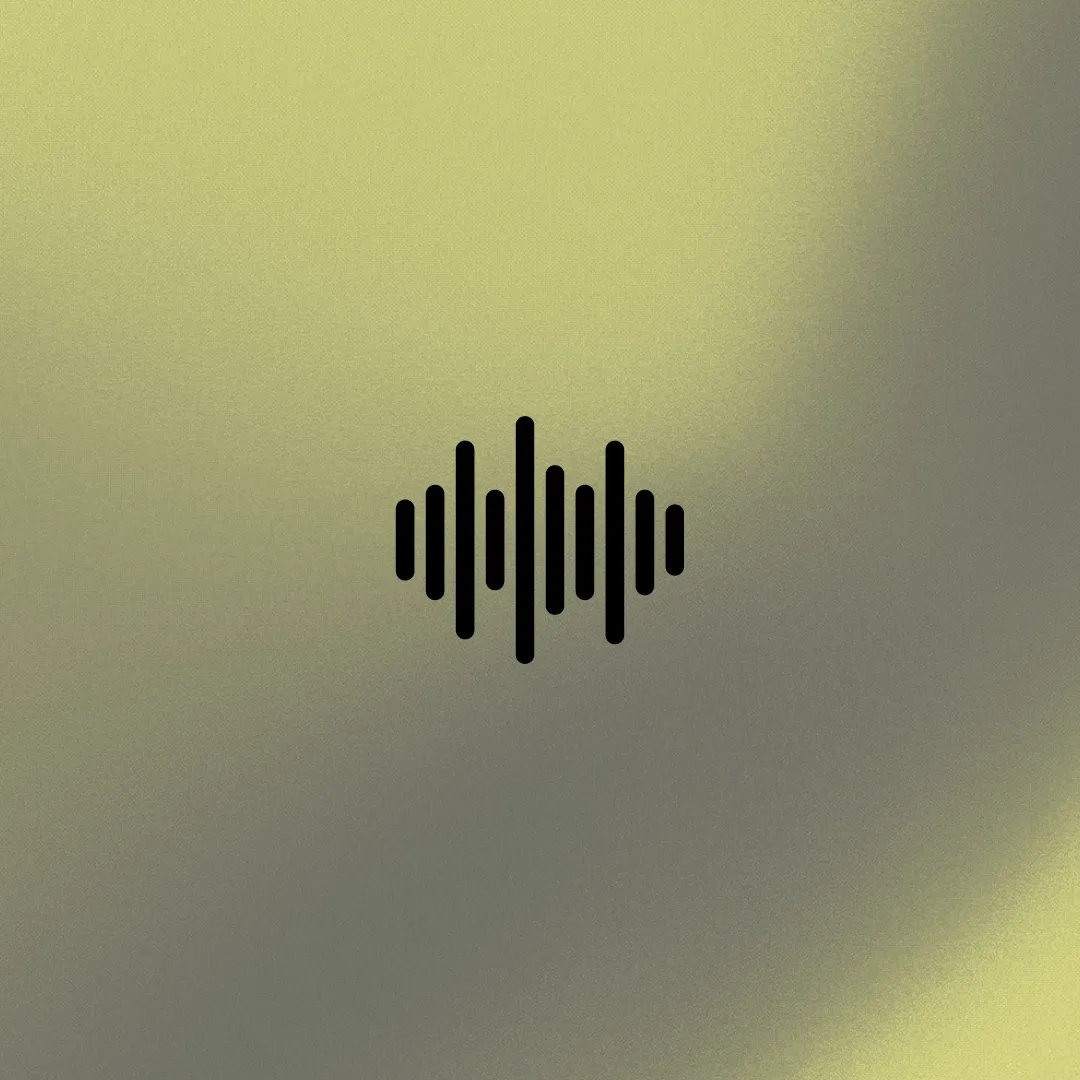-
Thursday, 12 April / Nouvel Building, Auditorium 200
A Theatre of the Present
Session 1
Presentation – 4:30pm
Participants: Ruth Estévez, Ana Longoni, Isabel de Naverán and José A. Sánchez, with an intervention by Javier del Olmo (Fundación León Ferrari)The Words of Others: A Research Account – 4:45pm
Lecture by Ruth Estévez
In 2013, Ruth Estévez embarked upon a research project that would last for four years. Her work explored León Ferrari’s literary collages, concentrating on his The Words of Others and its relevance as a pool of resources for the rest of his visual output. These colleges condemned the hypocrisy of political rhetoric and blew the whistle on the complicity of different bodies of military, political and religious power. Therefore, Estévez’s intervention sets forth a survey of this work in order to gain an understanding of the aspects underpinning Ferrari’s political thinking and critical viewpoint.Art/Politics in León Ferrari and the Avant-garde in 1960s Argentina – 5:30pm
Lecture by Ana Longoni
The artistic practice of León Ferrari changed forever with the profound impact the Vietnam War and the US invasion of Santo Domingo had on him, and many others. From 1965 until the end of his life, one axis to intersect his work highlighted the complicity between the Catholic Church and Imperialism. When some critical voices railed against “Western and Christian civilization”, dubbing it propagandist, Ferrari replied: “It’s what I have to say and I say it with the tools available to me”. Experimental art devised as a political stance is integral to an interpretation of experiments such as The Words of Others and an understanding of the collective course of radicalisation, both artistic and political, undertaken by the avant-garde in 1960s Argentina.Idea exchange – 6:15pm
Participants: Ruth Estévez y Ana Longoni
Moderated by: Isabel de NaveránTower of Babel – 7:30pm
A performance lecture by José A. Sánchez and artists and researchers linked to ARTEA
Participants: Ignacio de Antonio Antón, Amaia Bono Jiménez, Janaína Carrer, Cristina Cejas, Gisela Cortés, Andrea Dunia, Juan Pablo Fuentes Villarroel, Ksenia Guinea, David Hernández Vargas, Jessica Huerta, Katty López Soto, Ana Luiza Fortes , Fernando Mena, Eliana Murgia, Noemí Oncala, Laila Tafur Santamaría.In 2017, after staging The Words of Others at REDCAT in Los Angeles, the same team of curators looked towards the appropriation of the Ferrari method to speak about what we are affected by today, subsequently giving rise to “Babelism”. Tower of Babel (1963) is a wire sculpture made by Ferrari two years before The Words of Others, and refers to the idea of: “Making something without unity, with different sensibilities […], or making something with several”. This premise led them to thinking that the author composed The Words of Others single-handedly, rallied by the gravity of the war, violence, and torture, unable to wait any longer to become the producer. With a little more time, he would have opted, as in fact he finally did, for Babelism. And if this “Tower of Babel” were to take shape today, what would our present-day wars be?
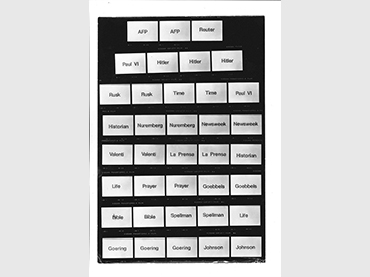
-
Friday, 13 April / Nouvel Building, Auditorium 200
A Theatre of the Present
Session 2
The Political Nature of Affection – 4:30pm
Lecture by Ileana Diéguez
How do we think and speak about what hurts? What can art do to hold up an injured body of work? Where do actions happen if there are no longer crowds? When a certain policy is exercised and curtails affection, artistic experience attempts to provide political forms in which this lost affectivity survives. Under such circumstances, political art must produce something other than subversion — it is not just about what can make us rise up; it is perhaps less epic that that: we stand to continue.Theatre and Politics - 5:15pm
Lecture by Akira Takayama
In 2011, the biggest earthquake ever to strike Japan devastated the region of Tohoku. The magnitude of this earthquake unleashed a tsunami with up to 41-metre-high waves, destroying many towns and cities and causing a malfunction in the cooling systems of the Fukushima nuclear power plant. Moreover, with a state of emergency declared, an explosion in the plant caused a wave of radiation within a 20-metre radius. These events prompted theatre director Akira Takayama to create a series of plays and initiatives, for instance the Referendum Project, Kein Licht II and Tokyo Heterotopia, through which he addressed the treatment of social trauma, political action and the effects on a community dealing with survival in their everyday lives. This lecture, therefore, will survey and explore these projects.Idea exchange – 6pm
Participants: Rolf Abderhalden, Ileana Diéguez y Akira Takayama
Moderated by: José A. SánchezThe Media Rhetoric. Post-truth, Fake News, Populism, Neo-censorship and Social Media – 7:30pm
Round-table discussion
Participants: Germán Cano, Lucía Méndez y Marta Peirano
Moderated by: Miguel Álvarez Peralta
In The Words of Others, León Ferrari reflects on politics-media logics and the relationship the rhetoric of journalism bears to the truth and smokescreens, key factors in the political conflicts of his time. More recently, the term post-truth (posverdad in Spanish), has entered the RAE, the Royal Spanish Academy Dictionary, and was voted Word of the Year by Oxford English Dictionary (OED) in 2016. This is testament to the validity, forty years on, of Ferrari’s concerns over media and political rhetoric and human rights. Consequently, this round-table discussion will focus on the role of the media �— now digitalised and globalised — in the contemporary public sphere and will run through some of the focal points that galvanised Ferrari, issues we know today as controversies like fake news, which bring to bear new determining factors in political relations and the power of current societies.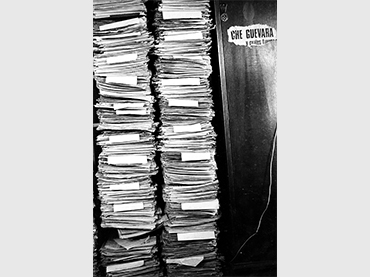
-
Saturday, 14 April / Nouvel Building, Auditorium 400
The Words of Others
A Literary Collage of León Ferrari
For the first time in Spanish, the Museo Reina Sofía presents León Ferrari’s The Words of Othersin its entirety. The piece, seven hours in duration, encapsulates the history of violence meted out by and in the West as a result of the complicity of political and religious power, an issue Ferrari explored throughout his career. Through words, The Words of Others visualises scenarios ranging from the punishment and redemption in the Judaeo-Christian doctrine and the horrors of the Second World War — Nazi Germany, concentration camps, the Nuremburg trials — to contexts closer and more contemporary to the artist, for instance the Vietnam War and the imperialist expansion of the USA during the Cold War. The artist created an extensive dialogue between such far-flung leading figures as Adolf Hitler, Pope Paul VI, God and the US President Lyndon B. Johnson, along with the voices of war correspondents, local and international journalists, servicemen, prophets and political advisors. These figures converse by way of quotes taken from history books and literature, the Bible, and particularly the printed press, magazines and national newspapers, as well as international agency cables.
This presentation seeks to raise awareness of a key piece in the artistic oeuvre of León Ferrari, and to pay homage to Ferrari as an artist, as well as constituting a gesture in defence of culture, democracy and human rights — issues which were imperative to Ferrari.
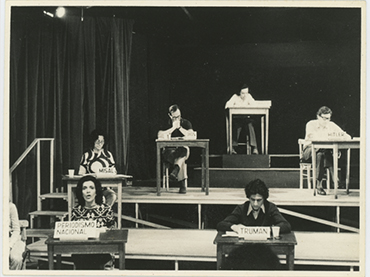
A Theatre of the Present
Rhetoric and Power in León Ferrari’s The Words of Others
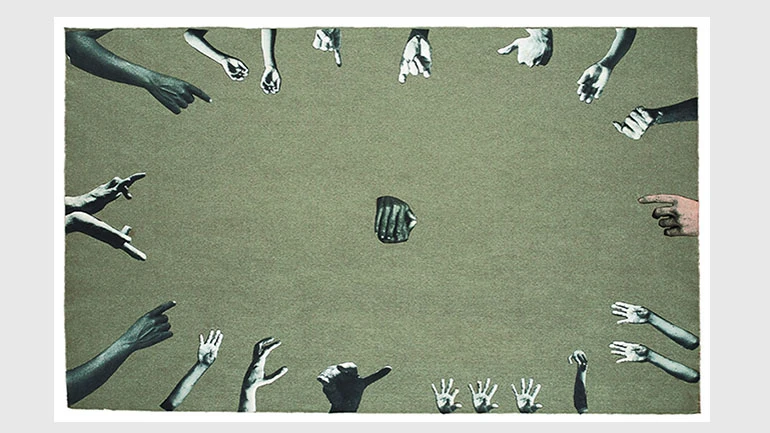
Held on 12, 13, 14 Apr 2018
León Ferrari (Buenos Aires, 1920–2013) assembled the literary collage Palabras ajenas (The Words of Others) between 1965 and 1967, his rationale driven by the violence and extreme cruelty that appeared in news reports of the Vietnam War. These reports heralded a way of exercising power which would soon be imposed upon vast swathes of Latin America. Yet this power-driven violence was in sharp contrast to the intentions and carefree rhetoric of the “shows” put on and headed by political leaders, who cynically justified the violation of human rights. The literary collage method enabled Ferrari to stage the false neutrality of the media, debunking fabricated narratives and laying bare the continuity between past — the Bible, Fascism — and present propaganda.
The Words of Others remains a theatre of the present because the condemnation of stances and modes is repeated, as are the authoritarian drift, inequality and segregation as forms of domination. It is no wonder that an artist hitherto focused on producing ceramics, sculptures and drawings ended up creating a theatrical collage with which to intervene in the present he faced: the real-time clash with the public sphere proved to be the most effective approach for a practice in need of becoming politically active.
With few concerns over being branded non-theatre or non-art, Ferrari’s work demonstrated how art and theatre could be performed as a committed action, an outcry in which war, economy and politics were already one big show.
The first day in this seminar will explore the distinctiveness of The Words of Others and its importance to the development of the thought and practice of its author. Moreover, it sets out to carve this and other Ferrari works into the historical and political contexts of the 1960s, punctuating the realm of Latin America, particularly Argentina. The second day will look at how the piece resonates in the present, thereby surveying the practices of different contemporary artists that stand at that sharp-edged junction of political action, reissuing modes of commitment that share similarities with those upheld by Ferrari throughout his life. On a further note and as an accompaniment to these reflections, an analysis will be conducted on the rhetoric of today’s media: how “post-truth” works and the possible critical alternatives.
The coda to the seminar will be a seven-hour presentation of The Words of Others in its entirety.
Acknowledgements
The Words of Others was originally produced by REDCAT/CalArts, with the support of the Getty Foundation. The performance was part of Pacific Standard Time: LA/LA, in Los Angeles. A special thank you to the Fundación Augusto y León Ferrari. Arte and Acervo (FALFAA)
Within the framework of the research project
Expanded Theatricalities (MINECO. HAR2015-63984-P), by the research group ARTEA
Activity inside the programme
Organised by
Museo Reina Sofía and ARTEA
Participants
Miguel Álvarez Peralta. Professor of Political Communication and the Global Media System at the University of Castilla la Mancha (UCLM), with a PhD in Mass Communication from the Complutense University of Madrid (UCM). Previously, he worked as a coordinator in the Scientific Culture Department at Spain’s National Distance Education University (UNED) and as a research fellow at Harvard University (USA) and the University of Bolonia (Italy). He is currently conducting research into the emergence of new narratives and political identities as a member of different R&D projects in Spain, for instance the Grupo CAPEP’s work on the Construction of Affairs in the Public Sphere.
Germán Cano. Head professor of Philosophy at the University of Alcalá de Henares, and a translator and analyst with an interest in social movements. He is also the author of Como un ángel frío (2000), Nietzsche y la crítica de la modernidad (2001); Hacer morir, dejar vivir. Biopolítica y capitalismo (2010) and Adoquines bajo la playa. Escenografías biopolíticas del 68 (2011), and is currently a contributor to “Cuarta Página” in Spain’s El País newspaper.
Ileana Diéguez. Research professor in the Humanities Department at the Universidad Autónoma Metropolitana (UAM)-Cuajimalpa, Mexico City, and coordinator of the programme Cartografías Críticas. Her work focuses on reflections connected to dismounting artistic processes, mourning and memory, and ‘necro-theatre’, and her most recent publications include Cuerpos sin duelo. Iconografías y teatralidades del dolor (2013) and Escenarios liminales. Teatralidades, performatividades, políticas (2014), among others.
Ruth Estévez. Curator, writer and set designer. She studied Fine Art at the
University of the Basque Country (UPV/EHU) and obtained an MA in Art History from the Universidad Nacional Autónoma de México (UNAM). Since 2012, she has been a director and head curator at RedCat/California Institute of the Arts (CalArts), a multidisciplinary space, centred on visual and performance arts, in the centre of Los Angeles (USA). Moreover, as an independent curator she has worked on projects at the Graham Foundation for Advanced Studies in Art and Architecture, in Chicago; the Los Angeles Public Art Biennial; Solo Projects at ARCO, Madrid, and the Palaix des Beaux Art Brussels.
Ana Longoni. Researcher, member of the Southern Conceptualisms Network, and incumbent director of Public Activities at the Museo Reina Sofía. With a PhD in the Arts from the University of Buenos Aires (UBA), she is a specialist in the crossroads between art and politics in Argentina and Latin America from the middle of the 20th century to the present day. Her publications include: Roberto Jacoby. El deseo nace del derrumbe (2011), Leandro Katz (2013) and Vanguardia y revolución (2014). Moreover, she curated Roberto Jacoby. Desire is Born from Collapse (Museo Reina Sofía, 2011) and Losing the Public Form. A Seismic Image of the 1980s in Latin America (Museo Reina Sofía, 2012/Museo de Arte de Lima (MALI), 2013 /Museo de la Universidad Nacional de Tres de Febrero (MUNTREF), 2014).
Lucía Méndez. With a degree in Information Science from the Complutense University of Madrid, she is an editor-in-chief and columnist for Spanish newspaper El Mundo, where she has worked since it was founded. She previously contributed to the newspapers El Norte de Castilla and Diario 16, and radio station cadena SER. Moreover, she is a contributor and analyst with cadena SER’s Hoy por Hoy, TVE’s (Spain’s public service television) Los desayunos de TVE, and a number of news programmes on Spanish TV channel La Sexta. She is the author of Duelo de titanes (2008) and Morder la bala. Relato íntimo del gobierno del PP (2012), and editor of Cristina Alberdi’s book El poder es cosa de hombres (2001).
Isabel de Naverán. Stage and theatre researcher. With a PhD in Fine Arts from the University of the Basque Country (UPV/EHU), she is a member of the Bulegoa z/b office for art and knowledge (Bilbao), part of ARTEA, and a lecturer on the MA in Performing Arts Practices and Visual Culture (UCLM and Museo Reina Sofía), and the MA in Research and Creation in Art (UPV/EHU). Furthermore, she has edited the books Hacer historia. Reflexiones desde la práctica de la danza (2010) and Lecturas sobre danza y coreografía (2013), among others, and, since 2016, has coordinated the dance series Elipsiak in AZ (Bilbao). She is also a dance instructor at the Museo Reina Sofía, in Madrid.
Marta Peirano. Deputy editor of Eldiario.es. Founder of CryptoParty Berlin and Elástico, multidisciplinary collectives with which she co-directed the project COPYFIGHt on free culture. The themes of her publications focus on digital art, surveillance, automata, and technological Futurism. Her most recent publication, El Pequeño libro rojo del activista en red (2015), with a preface by Edward Snowden, serves as an introduction to cryptography for journalists, reference material and the media.
José A. Sánchez. Researcher, teacher and the author of books and texts on contemporary artistic practice in the sphere of performance, cinema and literature. A professor in the Fine Arts Department of UCLM, he is the editor of the Virtual Archive of Performing Arts and director of the research group ARTEA. Furthermore, he has edited and contributed to publications such as Isadora Duncan. El arte de la danza y otros escritos (2003), Cuerpos sobre blanco (2003), Situaciones: un proyecto multidisciplinar en Cuenca (2003), Práctica artística y políticas culturales. Algunas propuestas desde la Universidad (2003), Artes de la escena y de la acción en España: 1978-2002 (2006), and No hay más poesía que la acción. Teatralidades expandidas y repertorios disidentes (2015).
Akira Takayama. Theatre director and founder, in 2002, of the project Unit Port B, a space for creating so-called site-specific performances. His work, shaped by this genre, is a theatre and performance hybrid, whereby interaction with the public is part of the mise en scène. His most recent works of note include The Complete Manual of Evacuation (2010), Referendum project (2011), Kein Licth II (2012) and Tokyo Heterotopia (2013).
Más actividades

Difficulty. Forms and Political Effects of Deviation in Writing and Contemporary Art
23 February – 14 December 2026 – Check programme
Difficulty. Forms and Political Effects of Deviation in Writing and Contemporary Art is a study group aligned towards thinking about how certain contemporary artistic and cultural practices resist the referentiality that dominates the logics of production and the consumption of present-day art. At the centre of this proposal are the concepts of difficulty and deviation, under which it brings together any procedure capable of preventing artistic forms from being absorbed by a meaning that appears previous to and independent from its expression. By ensuring the perceptibility of their languages, difficulty invites us to think of meaning as the effect of a signifying tension; that is, as a productive and creative activity which, from the materiality of art objects, frees aesthetic experience from the representational mandate and those who participate in it from the passiveness associated with tasks of mimesis and decoding.
The economy of the referential norm translates the social logic of capitalism, where insidious forms of capturing subjectivity and meaning operate. In the early 1980s, and adopting a Marxist framework, poet Ron Silliman highlighted how this logic entailed separating language from any mark, gesture, script, form or syntax that might link it to the conditions of its production, rendering it fetichised (as if without a subject) and alienating its users in a use for which they are not responsible. This double dispossession encodes the political strategy of referential objectivity: with no subject and no trace of its own consistency, language is merely an object, that reality in which it disappears.
The political uses of referentiality, more sophisticated today than ever before, sustain the neoliberal-extractivist phase of capitalism that crosses through present-day societies politically, economically and aesthetically. Against them, fugitive artistic practices emerge which, drawing from Black and Queer studies and other subaltern critical positions, reject the objective limits of what exists, invent forms to name what lies outside what has already been named, and return to subjects the capacity to participate in processes of emission and interpretation.
Read from the standpoint of artistic work, the objective capture of referentiality may be called transparency. Viewed from a social contract that reproduces inequality in fixed identity positions, transparent in this objectivity are, precisely, the discourses that maintain the status quo of domination. Opposite the inferno of these discourses, this group aims to collectively explore, through deviant or fugitive works, the paradise of language that Monique Wittig encountered in the estranged practices of literature. For the political potency of difficulty — that is, its contribution to the utopia of a free language among equals — depends on making visible, first, its own deviations; from there, the norm that those deviations transgress; and finally, the narrowness of a norm which in no way exhausts the possibilities ofsaying, signifying, referring and producing a world.
From this denouncement of referential alienation, fetishisation and capture, Difficulty. Forms and Political Effects of Deviation in Writing and Contemporary Art turns its attention to the strategies of resistance deployed by contemporary artists and poets. Its interest is directed towards proposals as evidently difficult or evasive as those of Gertrude Stein, Lyn Hejinian, Theresa Hak Kyung Cha, Kameelah Janan Rasheed, Kathy Acker, María Salgado and Ricardo Carreira, and as seemingly simple as those of Fernanda Laguna, Felix Gonzalez Torres and Cecilia Vicuña, among other examples that can be added according to the desires and dynamics of the group.
The ten study group sessions, held between February and December, combine theoretical seminars, work with artworks from the Museo Reina Sofía’s Collections and exhibitions, reading workshops and public programs. All these formats serve as spaces of encounter to think commonly about certain problems of poetics — that is, certain political questions — of contemporary writing and art.
Difficulty. Forms and Political Effects of Deviation in Writing and Contemporary Art inaugurates the research line Goodbye, Representation, through which the Museo Reina Sofía’s Studies Directorship seeks to explore the emergence of contemporary artistic and cultural practices which move away from representation as a dominant aesthetic-political strategy and redirect their attention toward artistic languages that question the tendency to point, name and fix, advocating instead for fugitive aesthetics. Over its three-year duration, this research line materializes in study groups, seminars, screenings and other forms of public programming.

Institutional Decentralisation
Thursday, 21 May 2026 – 5:30pm
This series is organised by equipoMotor, a group of teenagers, young people and older people who have participated in the Museo Reina Sofía’s previous community education projects, and is structured around four themed blocks that pivot on the monstrous.
This fourth and final session centres on films that take the museum away from its axis and make it gaze from the edges. Pieces that work with that which is normally left out: peripheral territories, unpolished aesthetics, clumsy gestures full of intent. Instead of possessing an institutional lustre, here they are rough, precarious and strange in appearance, legitimate forms of making and showing culture. The idea is to think about what happens when central authority is displaced, when the ugly and the uncomfortable are not hidden, when they are recognised as part of the commons. Film that does not seek to be to one’s liking, but to open space and allow other ways of seeing and inhabiting the museum to enter stage.

Intergenerationality
Thursday, 9 April 2026 – 5:30pm
This series is organised by equipoMotor, a group of teenagers, young people and older people who have participated in the Museo Reina Sofía’s previous community education projects, and is structured around four themed blocks that pivot on the monstrous.
The third session gazes at film as a place from which to dismantle the idea of one sole history and one sole time. From a decolonial and queer perspective, it explores films which break the straight line of past-present-future, which mix memories, slow progress and leave space for rhythms which customarily make no room for official accounts. Here the images open cracks through which bodies, voices and affects appear, disrupting archive and questioning who narrates, and from where and for whom. The proposal is at once simple and ambitious: use film to imagine other modes of remembering, belonging and projecting futures we have not yet been able to live.

Remedios Zafra
Thursday March 19, 2026 - 19:00 h
The José Luis Brea Chair, dedicated to reflecting on the image and the epistemology of visuality in contemporary culture, opens its program with an inaugural lecture by essayist and thinker Remedios Zafra.
“That the contemporary antifeminist upsurge is constructed as an anti-intellectual drive is no coincidence; the two feed into one another. To advance a reactionary discourse that defends inequality, it is necessary to challenge gender studies and gender-equality policies, but also to devalue the very foundations of knowledge in which these have been most intensely developed over recent decades—while also undermining their institutional support: universities, art and research centers, and academic culture.
Feminism has been deeply linked to the affirmation of the most committed humanist thought. Periods of enlightenment and moments of transition toward more just social forms—sustained by education—have been when feminist demands have emerged most strongly. Awareness and achievements in equality increase when education plays a leading social role; thus, devaluing intellectual work also contributes to harming feminism, and vice versa, insofar as the bond between knowledge and feminism is not only conceptual and historical, but also intimate and political.
Today, antifeminism is used globally as the symbolic adhesive of far-right movements, in parallel with the devaluation of forms of knowledge emerging from the university and from science—mistreated by hoaxes and disinformation on social networks and through the spectacularization of life mediated by screens. These are consequences bound up with the primacy of a scopic value that for some time has been denigrating thought and positioning what is most seen as what is most valuable within the normalized mediation of technology. This inertia coexists with techno-libertarian proclamations that reactivate a patriarchy that uses the resentment of many men as a seductive and cohesive force to preserve and inflame privileges in the new world as techno-scenario.
This lecture will address this epochal context, delving into the synchronicity of these upsurges through an additional parallel between forms of patriarchal domination and techno-labor domination. A parallel in which feminism and intellectual work are both being harmed, while also sending signals that in both lie emancipatory responses to today’s reactionary turns and the neutralization of critique. This consonance would also speak to how the perverse patriarchal basis that turns women into sustainers of their own subordination finds its equivalent in the encouraged self-exploitation of cultural workers; in the legitimation of affective capital and symbolic capital as sufficient forms of payment; in the blurring of boundaries between life and work and in domestic isolation; or in the pressure to please and comply as an extended patriarchal form—today linked to the feigned enthusiasm of precarious workers, but also to technological adulation. In response to possible resistance and intellectual action, patriarchy has associated feminists with a future foretold as unhappy for them, equating “thought and consciousness” with unhappiness—where these have in fact been (and continue to be) levers of autonomy and emancipation.”
— Remedios Zafra

27th Contemporary Art Conservation Conference
Wednesday, 4, and Thursday, 5 March 2026
The 27th Contemporary Art Conservation Conference, organised by the Museo Reina Sofía’s Department of Conservation and Restoration, with the sponsorship of the Mapfre Foundation, is held on 4 and 5 March 2026. This international encounter sets out to share and debate experience and research, open new channels of study and reflect on conservation and the professional practice of restorers.
This edition will be held with in-person and online attendance formats, occurring simultaneously, via twenty-minute interventions followed by a five-minute Q&A.

